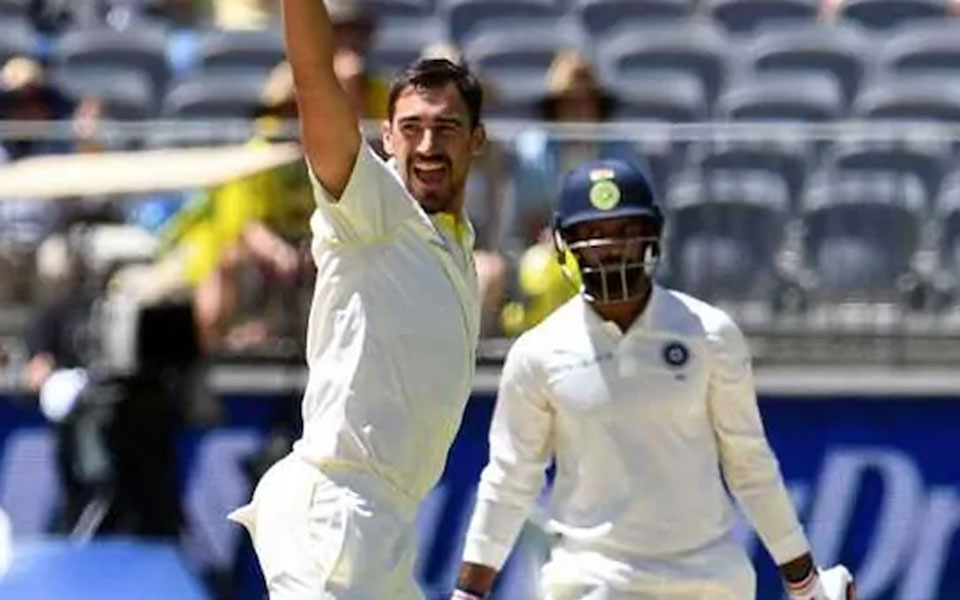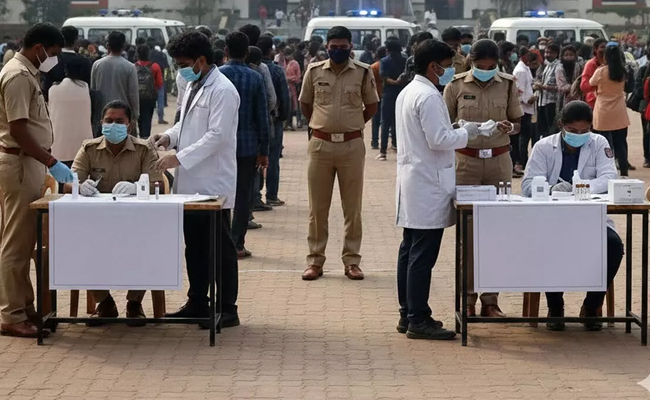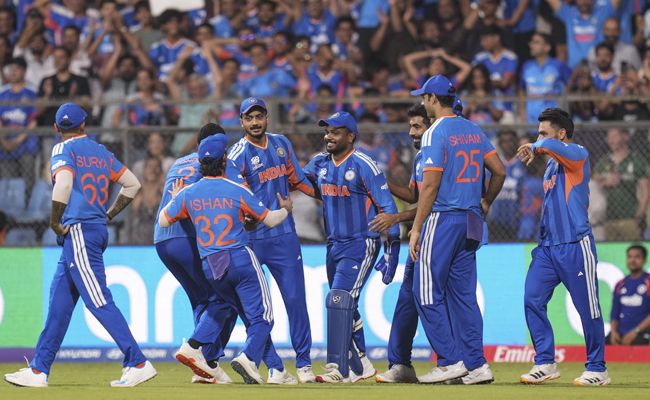Perth, Dec 18 : India crumbled in the face of Australia's remarkable metamorphosis and crashed to a 146-run defeat in the second Test here Tuesday, surrendering a rare hard-earned ascendancy in a series Down Under.
The hosts levelled the four-match series 1-1 after India were bowled out for 140 runs in 56 overs in their second innings on the fifth and final day. India had won the opening game by 31 runs to go in front.
Starting from overnight 112 for five, India lost their last five wickets for 28 runs and it was all over within 65 minutes of play.
This was Australia's first Test win since the ball-tampering scandal broke out in South Africa earlier this year.
Mitchell Starc (3-46) and Nathan Lyon (3-39) finished with three wickets apiece, while Josh Hazlewood (2-24) and Pat Cummins (2-25) took a brace each.
Hanuma Vihari (28) and Rishabh Pant (30) had continued their overnight partnership, and batted out only six overs before the first wicket fell on this day. Overall, they added 21 runs for the sixth wicket.
Vihari was the first to go, lobbing a catch off Starc to short point. Pant then tried to play a few more attacking strokes, but he didn't comprehend the situation well and was confused whether to farm the strike at all.
In doing so, he attacked Lyon and holed out to mid on, with Peter Handscomb taking a low diving catch.
It hastened the end for India, with Umesh Yadav (2) returning a simple catch to Starc.
Ishant Sharma (0) was caught behind off Cummins, and Jasprit Bumrah (0) hit a skier for another return catch to the pacer as Australia sealed their first Test win since Durban before the ball-tampering scandal hit the headlines.
Australia had scored 326 runs in their first innings, and India replied with 283 runs, thanks to Virat Kohli's 25th Test hundred, thus conceding a lead of 43 runs. The hosts scored 243 runs in their second innings to post a 287-run target.
India had won the first Test in Adelaide by 31 runs. The third Test starts in Melbourne on December 26.
Let the Truth be known. If you read VB and like VB, please be a VB Supporter and Help us deliver the Truth to one and all.
Goma (Congo) (AP): A mine collapse on Tuesday at a major coltan mining site in eastern Congo left at least 200 dead, according to Congolese authorities, a number disputed by the rebel group that controls the mine.
The collapse took place on Tuesday at the Rubaya mines, which are controlled by the M23 rebels, according to a press release from the Ministry of Mines on Wednesday.
Fanny Kaj, a senior official in the M23 rebel group, which controls the mines, disputed the figure and said that the collapse was caused by “bombings” and only five people had been killed.
“I can confirm that what people are publishing is not true. There was no landslide; there were bombings, and the death toll isn't what people are saying. It's simply about five people who died,” Kaj said.
Ibrahim Taluseke, a miner at the site, said that he had helped to recover over 200 bodies from the area.
“We are afraid, but these are lives that are in danger,” said Taluseke. “The owners of the pits do not accept that the exact number of deaths be revealed.”
Rubaya lies in the heart of eastern Congo, a mineral-rich part of the Central African nation which for decades has been ripped apart by violence from government forces and different armed groups, including the Rwanda-backed M23, whose recent resurgence has escalated the conflict, worsening an already acute humanitarian crisis.
Congo is a major supplier of coltan, a black metallic ore that contains the rare metal tantalum, a key component in the production of smartphones, computers and aircraft engines.
The country produced about 40 per cent of the world's coltan in 2023, according to the US Geological Survey, with Australia, Canada and Brazil being other big suppliers. Over 15 per cent of the world's supply of tantalum comes from Rubaya's mines.
In May 2024, M23 seized the town and took control of its mines. According to a UN report, since seizing Rubaya, the rebels have imposed taxes on the trade and transport of coltan, generating at least USD 800,000 a month.
Eastern Congo has been in and out of crisis for decades. Various conflicts have created one of the world's largest humanitarian crises, with more than 7 million people displaced, including more than 300,000 who have fled their homes since December.
In June, the Congolese and Rwandan governments signed a peace deal brokered by the US and negotiations continue between rebels and Congo. However, fighting continues on several fronts in eastern Congo, continuing to claim numerous civilian and military casualties.
The deal between Congo and Rwanda also opens up access to critical minerals for the US government and American companies.
A similar collapse last month killed over 200.





